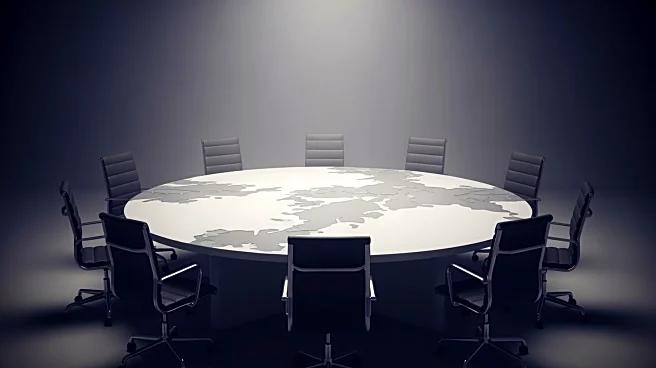What's Happening?
The United States has proposed a resolution at the United Nations to establish an international stabilization force in Gaza. This initiative aims to secure border areas and ensure the full resumption of
humanitarian aid. However, the proposal is facing opposition from Russia, China, and some Arab countries. These nations have expressed concerns over the establishment of a transitional governing body, known as the 'Board of Peace,' which would temporarily administer Gaza. The proposal also includes a plan for the Palestinian Authority to eventually take control after completing reforms. The U.S. Secretary of State Marco Rubio has urged the UN Security Council to pass the resolution swiftly to avoid disrupting progress towards peace.
Why It's Important?
The proposal is significant as it seeks to stabilize Gaza, a region that has been affected by prolonged conflict. The establishment of a stabilization force could facilitate the flow of humanitarian aid and contribute to regional peace. However, the opposition from major powers like Russia and China highlights geopolitical tensions and differing interests in the Middle East. The resolution's success or failure could impact U.S. diplomatic relations and influence in the region. Additionally, the plan's emphasis on Palestinian self-determination and statehood could have long-term implications for the Israeli-Palestinian conflict.
What's Next?
The U.S. may need to negotiate amendments to the resolution to gain broader support within the UN Security Council. If the resolution is not passed, the U.S. might consider forming a coalition outside the UN to implement the stabilization force. The outcome of these negotiations will determine the future of U.S. involvement in Gaza and its ability to influence peace efforts in the region.








